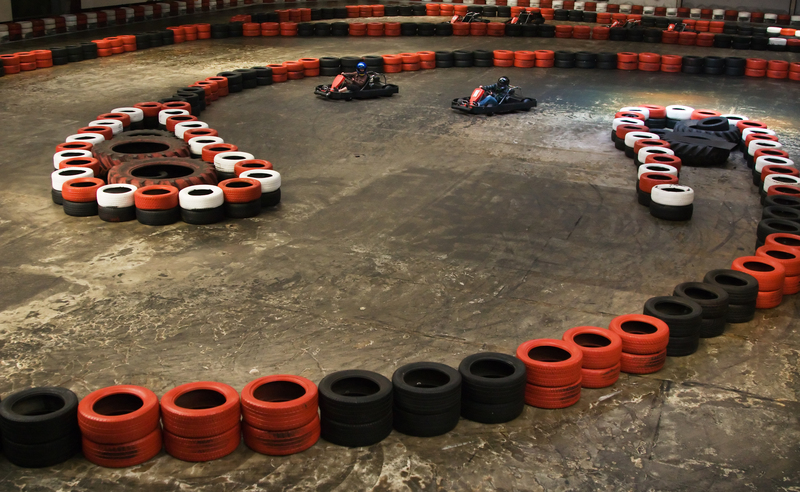Donating or Repurposing Old Pots and Pans in Your Community
Do you have a stack of unwanted cookware cluttering your kitchen? Giving second life to old pots and pans doesn't just free up space; it also helps the environment and supports your community. In this in-depth article, we'll explore eco-friendly, practical, and creative ways to donate or repurpose pots and pans locally. Whether your cookware is gently used or worn-out, discover how you can make a difference through responsible disposal, upcycling, or charitable giving.
Why Should You Consider Donating or Repurposing Old Pots and Pans?
Millions of pounds of metal cookware end up in landfills each year. Unfortunately, much of this waste could be reused or recycled. By choosing to donate or repurpose old cookware, you:
- Reduce landfill waste
- Conserve resources by lowering demand for new products
- Support local charities and families in need
- Encourage creativity and sustainability in your community
Old pots and pans--even if they look past their prime--can serve important functions elsewhere, from soup kitchens to craft projects. Embracing this eco-friendly habit is a simple, effective step toward a more sustainable lifestyle.

How to Donate Used Pots and Pans Locally
Donating gently used cookware can make a big impact for local families, schools, and charitable organizations. Here's how to get started:
1. Assess Condition and Clean Thoroughly
Before donating, inspect each item. Is it safe to use? Charities usually accept pots and pans that are:
- Free of rust or excessive staining
- Functional handles and lids
- No significant dents or warped bottoms
Wash all items thoroughly. A sparkling clean donation is more likely to be accepted and used right away.
2. Where to Donate Pots and Pans
Consider these organizations in your community for cookware donations:
- Thrift stores such as Goodwill, Salvation Army, or local independent shops
- Homeless shelters, women's refuges, and transitional housing programs
- Soup kitchens and food banks that prepare or distribute meals
- Community centers with culinary classes or kitchen programs
- Religious or faith-based organizations supporting low-income families
Tip: Always call ahead to confirm their need and donation guidelines for kitchenware.
3. Community Freecycle and 'Buy Nothing' Groups
Websites and social media groups focused on giving away or trading items--like Freecycle, Facebook Marketplace, or Buy Nothing Project--are excellent places for finding new homes for your old cookware. This keeps items in use within your immediate community and often helps those who need them most.
Creative Ideas for Repurposing Old Pots and Pans
Not all cookware is in a condition fit for donation. Instead of discarding damaged or outdated pots and pans, try these upcycling projects to breathe new life into them. Transforming kitchenware can lead to beautiful and useful items for your home or garden!
1. Planters and Flower Pots
Old pots make perfect planters! Drill a drainage hole in the bottom, fill with soil, and add your favorite flowers or herbs. Hang saucepans from fences or decks, or group them together for a whimsical garden display.
2. Bird Baths and Feeders
Large frying pans or metal bowls can be elevated or hung to create a rustic bird bath or seed feeder for backyard wildlife.
3. Storage Containers
Deep pots and Dutch ovens become unique storage for office supplies, toys, or kitchen gadgets. Paint or decorate them to match your style.
4. Wall Art and Clocks
With a coat of vibrant paint, an old pan becomes colorful wall art! Add clock hands to a frying pan for a quirky, functional timepiece in your kitchen or workshop.
5. Candle Holders or Lanterns
Turn smaller pots into sturdy candle holders. With some creativity--and holes drilled for ventilation--old bakeware makes charming lanterns for your patio or porch.
6. Musical Instruments for Kids
Sturdy pans make wonderful drums or tambourines in homemade music kits for children. This can be a fun project for schools or playgroups!
Eco-Friendly Kitchen Ware Disposal Alternatives
Some pots and pans are simply too worn or damaged to donate or repurpose. Here's how to dispose of them with the environment in mind:
- Scrap Metal Recycling: Most metal cookware--including stainless steel, cast iron, and aluminum--can be recycled with scrap metal. Remove plastic handles or non-metal parts, then check with your local recycling center for drop-off rules.
- Manufacturer Take-Back Programs: Some cookware brands offer recycling or trade-in programs. Contact the manufacturer to see if they accept old products.
- Municipal Bulk Waste Collection: If recycling isn't available, ask your local waste management about disposing of large or bulky items responsibly.
Important: Nonstick cookware (like Teflon-coated pans) may not be accepted at all recycling centers due to coating chemicals. Always confirm with your facility before dropping them off.
The Environmental Impact of Donating and Repurposing Kitchenware
Why does all this matter? The environmental footprint of manufacturing and discarding cookware is significant. Here's how conscious disposal--whether through donation or creative reuse--makes a measurable impact:
- Reduces demand for new metal mining and manufacturing, which produces pollution and consumes energy
- Decreases landfill space used by bulky, non-biodegradable items
- Supports a circular economy, keeping products in use for longer
- Raises community awareness about waste reduction and resource conservation
By making thoughtful disposal choices, you help build a more resilient, resourceful, and sustainable community. Small actions, when multiplied by many, can create lasting change.
How to Organize a Community Cookware Swap or Collection Drive
Donating cookware individually is impactful--but organizing a larger effort magnifies the benefits! If you want to inspire your neighbors, here's how to host a successful community cookware exchange or donation drive:
1. Choose a Cause and Set Goals
Identify local organizations or families who will benefit from donated cookware. Set clear goals: How many items do you hope to collect? Who are the recipients?
2. Promote Your Event
- Create flyers and social media posts with event details
- Reach out to community centers, churches, workplaces, and schools
- Partner with a charity for added credibility
Use inspiring messages about environmental stewardship and helping neighbors in need to encourage participation!
3. Set Up a Collection or Swap Site
Designate an easily accessible drop-off location and set a convenient date. For swaps, invite participants to bring items to trade--making it a fun, community-driven event.
4. Sort, Clean, and Distribute
Enlist volunteers to help inspect and clean cookware. Package items for delivery to charities, or set up a "free table" for community members to take what they need.
5. Celebrate and Share Success
Thank participants, celebrate your results, and share stories or photos of the donated cookware in use. This generates positive momentum for future sustainability efforts.
Tips for Keeping Your Kitchenware in Good Condition
Prevention is better than cure! Take good care of your kitchenware to extend its lifespan and make future donations possible:
- Hand wash pots and pans when possible
- Use non-metal utensils with nonstick or coated cookware
- Store items carefully to prevent warping, scratching, or chipping
- Avoid sudden temperature changes that may damage metal
- Regularly season and oil cast iron to keep it rust-free
Well-maintained cookware is always more useful--both for you and for those who may inherit it later.

Frequently Asked Questions: Donating and Recycling Pots and Pans
Q: Can cracked or dented pots and pans be donated?
A: Only if the damage does not impact the safety or usability of the item. Heavily damaged cookware is better suited to recycling or upcycling projects.
Q: Is it possible to donate nonstick cookware?
A: Many charities are cautious with nonstick pans due to wear and potential safety issues. Check with each organization about their guidelines, and ensure the coating is intact and free of peeling or flaking.
Q: How do I recycle old aluminum or stainless steel pots and pans?
A: Remove any non-metal parts and take the items to a scrap metal recycler or municipal drop-off location. Some curbside programs accept small metal items--always check local guidelines.
Q: What are good uses for a single, unmatched cookware piece?
A: Repurposing is perfect for singles! Make a planter, storage pot, or creative art project. Or post it in a local Buy Nothing group--someone may be seeking just that size or style!
Conclusion: Make a Positive Impact--One Pan at a Time
Old pots and pans don't have to gather dust or end up in the landfill. By donating cookware, repurposing old pans, or disposing of them responsibly, you help your community and protect the environment. Every item you pass on is a resource saved and a neighbor helped. Start today--sort your kitchen, find a donation recipient, or tackle a creative upcycling project. Your actions can spark inspiration and sustainability in your own backyard!
Start Your Sustainable Kitchen Journey Now
Ready to make a change? Gather your old pots and pans and take action. Whether it's donating, recycling, or repurposing, you'll be part of a growing movement for greener, healthier communities.
Share this article with your neighbors, friends, and family to spread the word about the benefits of donating and repurposing cookware. Together, we can make a difference, one pan at a time!
- Related: EPA Recycling Guidelines
- Find Freecycle Near You: freecycle.org
- Local Donation Sites: Contact nearby thrift shops or charity kitchens